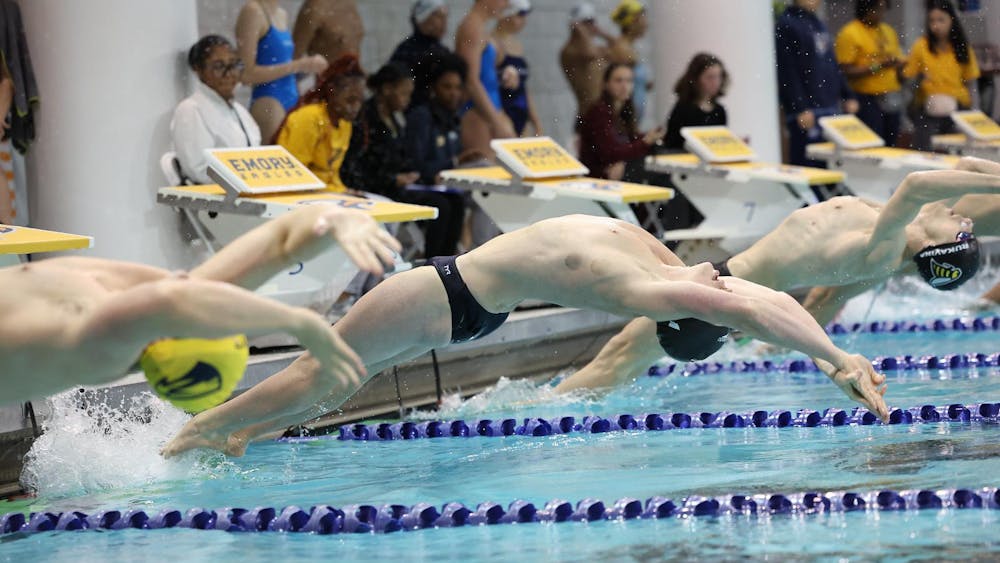This is the first installment in the Wheel's new series, Coach Conversations, which is dedicated to getting to know the people behind Emory's sports teams. Former Emory University baseball head coach Mike Twardoski retired in May after leading the team for a quarter of a century. Bobby Perez, who has been part of the team’s coaching staff since 2008, officially became the next head coach on Aug. 1. The Emory Wheel sat down with Perez prior to his first season at the helm of Emory baseball to learn more about his journey as a coach and his connection to the University.
The Q&A has been edited for length and clarity.
The Emory Wheel: When did you first get involved with baseball?
Bobby Perez: Five years old. I started playing in Little League at a very young age. My father was a high school baseball coach, so it's been in our family for a very long time. I've been involved with baseball for as long as I can remember.
TEW: Was this in Florida?
Perez: It was. Yes, I grew up just outside of Tampa.
TEW: I did too! Did they teach you how to run away from a gator in elementary school too?
Perez: I mean, zigzagging?
TEW: Yes! No one believes me!
Perez: Whether it's a wives’ tale or not, everybody knows, so I guess it's true. I've never had to run away. I've seen plenty of them, but I've never had one chase me.
TEW: Did you play any other sports before baseball or simultaneously before you decided that was your sport?
Perez: I played some junior high football and basketball, but not once I got to high school. I only played baseball.
TEW: What was your position?
Perez: I played mostly infield, but once I got to high school, it was mostly third base.
TEW: I saw that you played for two colleges.
Perez: I did. I went to junior college first in Florida, South Florida Community College, and then the University of Louisville (Ky.).
TEW: What was it like playing for two teams?
Perez: It was just the opportunities I had to play. I wanted to continue playing in college, and South Florida Community College was the best opportunity for me at that time. … It was about an hour from home. I had a great experience there, and then had the opportunity to go to Louisville and enjoyed that as well.
TEW: How does it feel to be on the other side now from being a baseball player to being a coach?
Perez: I've probably coached longer than I've played or almost as long as I've played at this point now. Everybody misses playing. I'm 43 so I don't do the things that I could do when I was 23, obviously. In some ways you miss playing, but getting to be around it and be out there all the time, … it's probably a big reason why people stay in coaching. Obviously getting to help teach and mentor kids, that's part of it. Being around the game and around that camaraderie with a team atmosphere is a big reason for it as well. I don't miss playing. Maybe I did at first, … but at the same time, you fill a lot of those athletic desires, passions, drives through coaching.
TEW: How did you wind up at Emory?
Perez: After I got done at the University of Louisville, I got my master's. I went to work in the summer of 2005 down at the IMG Academy in Bradenton, Fla. The gentleman I was working for down there, a guy named Ken Bullock, we had a conversation, “What are you gonna do after the summer?” I said, “I think I'm moving to Atlanta,” and he asked me what I wanted to do. I said, “I hoped that I could stay in coaching. I don’t know if I am.” He had coached the previous head coach, Mike Twardowski, in pro ball so he knew Mike. … But he's like, “Well, if you'd like to continue to coach, I'll make a call and see if he has a spot for you or at least the opportunity.” So that's what happened. I worked at Emory for one year, and then I went to Georgia State as their volunteer for two years, and then the full-time assistant’s job came open here in the summer of 2008. Coach T. called me back and asked if I'd like to come back, and I did, and I've been here ever since.
TEW: What's your favorite part about being a coach?
Perez: The interaction with the student-athletes. You hang out with a bunch of 18 to 22-year-olds, it kind of keeps you young at heart a little bit, and that’s pretty cool. That and getting to go to the baseball field most days of the week.
TEW: How did you know coaching was the path for you?
Perez: Some of it was being around the game at a young age and being brought up a certain way. I liked being at the ballpark. My dad, like I said, was a coach and a high school teacher. … I was around somebody who taught the game really well and taught people very well so I hope some of that’s rubbed off.
TEW: What has baseball taught you that you bring into your coaching career?
Perez: Every day is kind of a new day. It’s very cliche to say, “You just gotta work hard every day and it sort of accumulates,” but it's very true, right? You go out and give your best effort every day, and things start to stack up, and then good things happen. Baseball is sort of a grind that way.
TEW: What do you think makes a great coach?
Perez: The ability to listen to people. You have to be able to handle multiple personalities on the team. Everybody's a little bit different. Obviously, having a knowledge of the game is a baseline thing. … You're always learning. I certainly don't consider myself a really good coach. I'm still learning, and being a head coach is different than being an assistant coach. There's different responsibilities and I'm learning that all the time now, and I still haven't actually coached my first game as a head coach yet. Coaching is a lot about learning how people learn so that you can give them the information that they need to help them be successful.
TEW: What's the hardest thing to master as a coach?
Perez: Probably understanding that you're never going to master it. That’s all there is to it. There’s different challenges and there's different stuff every day... It's always an ever-evolving thing.






